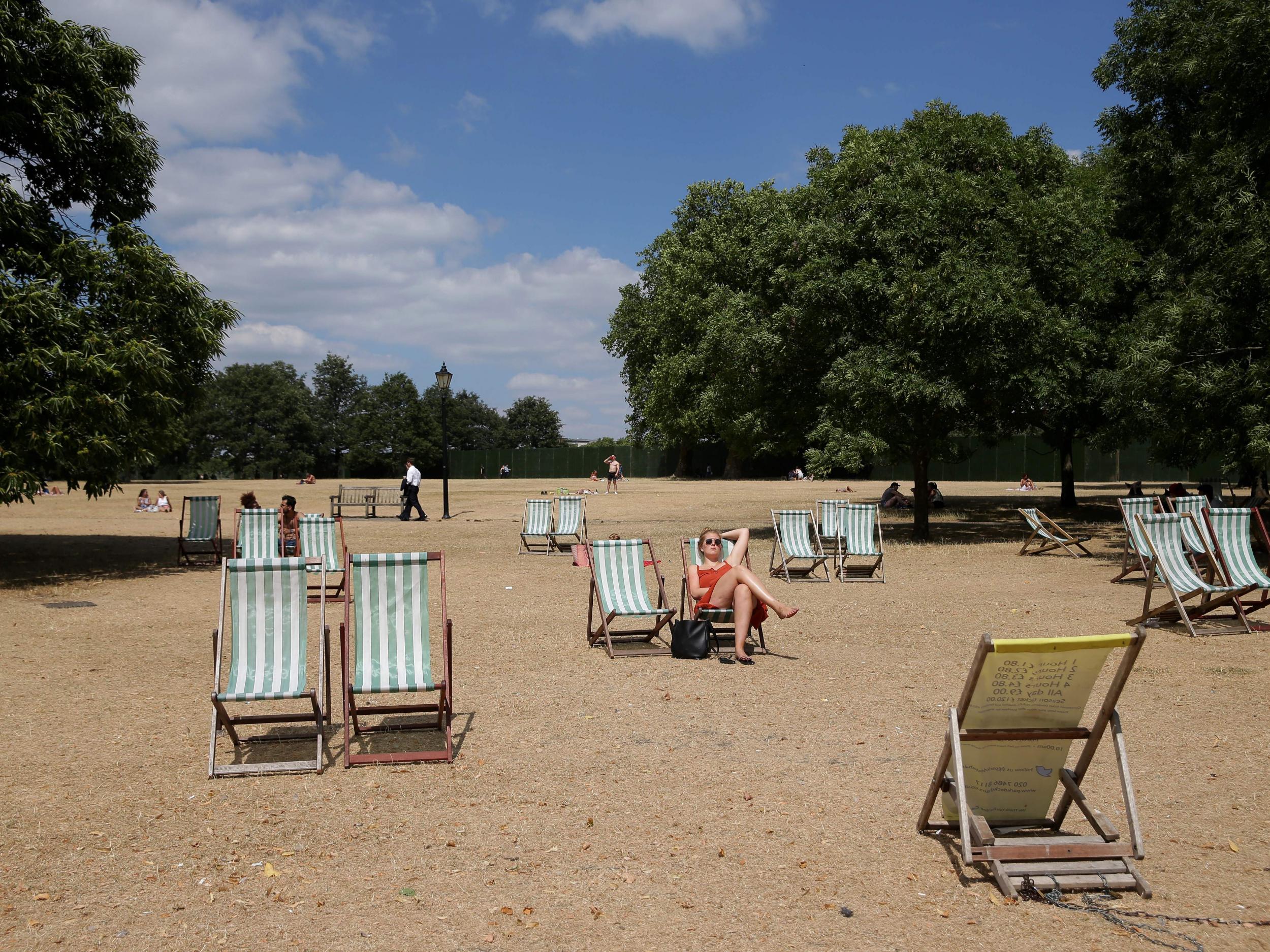Heat-related deaths will treble by 2050 unless government takes urgent action, warn MPs
Extreme temperatures set to kill 7,000 every year as incredibly hot summers become normal

With the nation in the grip of a heatwave, MPs have warned that heat-related deaths in the UK will treble by the middle of the century unless the government tackles this new public health emergency.
Sweltering temperatures in 2003 killed over 2,000 people in the space of just 10 days, and Met Office data suggests such deadly events will be the norm in coming decades.
With climate change making extreme temperatures more likely by the year, the number of annual deaths will likely hit 7,000 by 2050.
High temperatures cause surges in mortality in vulnerable groups like elderly people and small children, and particularly those with heart and lung conditions.
Experts are already warning the death toll from the ongoing heatwave is likely to exceed 1,000, and are calling on the government to confront this silent threat.
In their new report, the Environmental Audit Committee laid out a series of demands, based on consultation with experts, to improve the government’s piecemeal approach to heatwaves.
“The government must stop playing pass the parcel with local councils and the NHS and develop a strategy to protect our ageing population from this increasing risk,” said Mary Creagh, chair of the committee.
While minsters have officially recognised the risk posed by heatwaves, there is no clear information available to the public about them and no commonly accepted definition of “heatwave”.
Bob Ward, policy director at the Grantham Research Institute at London School of Economics and Political Science (LSE), has warned that many deaths could be avoided if government departments improved their “shockingly poor” communications with the public about heatwaves.
Even the minister for public health and primary care, Steven Brine, has acknowledged that heat alerts are seen by the public as “barbecue alerts”.
As it stands, there is a lack of regulation to ensure homes, transport systems and hospitals do not overheat, or to limit maximum classroom or workplace temperatures.
In addition, the committee concluded a lack of monitoring of local authorities’ capacity to deal with extreme heat meant heatwave adaptation had “slipped to the bottom of the pile”.
The MPs called for the urgent action on all of these failings, and for the appointment of a minister to lead this work.
Government advisers the Committee on Climate Change (CCC) contributed to many of the report’s recommendations, and have called for more “joined-up thinking” between government departments when tackling the harmful effects of climate change and heatwaves.
“Overheating is a hidden risk compared to something like flooding, which is very visual and you can see the impact straight away,” explained Kathryn Brown, head of adaptation at the CCC.

“You don’t get heat as the cause of death on the death certificate, but what we find after a heatwave event is an increase in overall mortality above and beyond what you would expect for that time of year,” said Ms Brown.
Professor Helen Stokes-Lampard, chair of the Royal College of GPs, welcomed the report’s proposals.
“It’s essential that the NHS is prepared for heatwaves, and that we don’t find ourselves facing two seasonal crises a year – one of which already threatens to destabilise the entire health service each winter,” she said.
As scientists have made the link between climate change and heatwaves clear, environmental groups were quick to link extreme heat deaths and carbon emissions.
“The government must pull the plug on short-sighted policies that help send the mercury soaring and endanger lives,” said Rachel Kennerley, climate campaigner at Friends of the Earth.
A government spokesperson said: “We are taking robust action to ensure our country is resilient and prepared for the challenges a changing climate brings.
“We will continue to support vulnerable people across society by issuing public health alerts during spells of hot weather, providing advice to schools, and taking steps to tackle overheating risks in new homes.
“Our long-term plan for climate change adaptation sets out ongoing work and investment to make sure food and water supplies are protected, businesses and communities are properly prepared and the right infrastructure is in place.”
Join our commenting forum
Join thought-provoking conversations, follow other Independent readers and see their replies
Comments
Bookmark popover
Removed from bookmarks